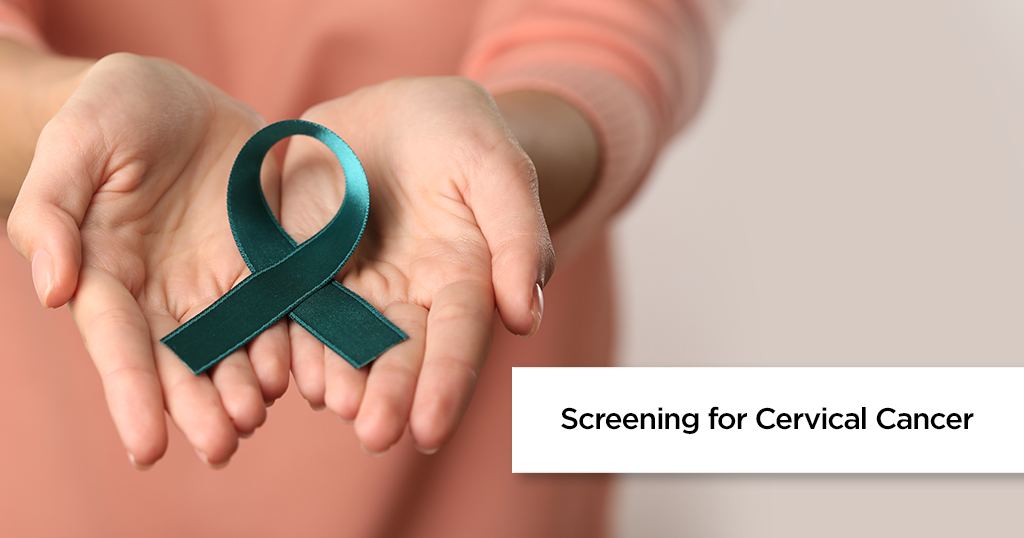Dr Kiranmai Gottapu
Consultant Obstetrician & Gynecologist
Apollo Hospitals, Vishakhapatnam
and
Dr Tholapi Kalyani
Obstetrics and Gynaecology, Hyderabad
Overview
After breast cancer, cervical cancer is considered to be the second most common cancer among women. It is the primary cause of cancer-related deaths in developing countries. Any woman who has ever been sexually active is at risk of developing cervical cancer, but becoming sexually active at a younger age may increase the risk of this cancer.
The mean age for cervical cancer is 47 years, and the distribution of cases is bimodal, with peaks at the age of 35 to 39 years and at 60 to 64 years of age, especially those from the lower economic status due to lack of adequate screening.
What is Cervical Cancer?
Cervical cancer is a kind of cancer that occurs in the cervix cells. The cervix is the lower part of the uterus, which connects to the vagina. Human Papillomavirus (HPV), a group of over 150 related viruses, is the most common risk factor for cervical cancer. Many different types of HPV can infect the cervix, and some of these cells can become cancerous.
The risk of developing cervical cancer can be reduced by having regular screening tests. In addition, vaccination to prevent HPV infection can reduce the risk cervical cancer and other cancers too.
Human Papillomavirus (HPV) Infection
HPV is the main cause of most types of cervical cancer. HPV can spread through close skin to skin contact, generally during sexual activity. A majority of sexually active individuals come into contact with HPV during their lifetime. However, for many this virus causes no harm and generally goes away on its own.
However, some types of HPV causes genital warts, while others can cause changes that may develop into cancer. Apart from cancer of the cervix, HPV can lead to vaginal, anal, vulval, penile including some types of throat and mouth cancers.
Types of HPV:
About 12 types of HPV are said to be high risk for cancer of the cervix among which, two types, HPV 16 and HPV 18, cause 70% cervical cancer cases. At a given time, about 5.0% of women in the general populace are expected to harbour cervical HPV-16/18 infection. In addition, 83.2% of invasive cervical cancers said to be attributed to HPVs 16/18.
Symptoms of Cervical Cancer
Vaginal bleeding is the most common symptom. Most often, this is postcoital bleeding, but it may occur as irregular or postmenopausal bleeding. Patients with advanced disease may present with a malodorous vaginal discharge, weight loss or obstructive uropathy.
Risk Factors for Cervical Cancer
Risk factors for cervical cancer are:
- Early sexual activity (Sex at an early age)
- Multiple sexual partners
- High parity
- Long-term contraceptive use
- Race
- Low socioeconomic status
- Poor hygiene
- Cigarette smoking
- Chronic immune suppression (weakened immune system)
Cervical Cancer Screening
Unlike other cancer sites, the cervix can be subjected to screening for early diagnosis. The chances and length of survival become better if detected and treated in earlier stages. Modern radiographic modalities, such as CT (Computed Tomography) scan, MRI (Magnetic Resonance Imaging), Ultrasound or PET (positron emission tomography) scan may be beneficial for individual treatment planning. The treatment modalities offered are surgery and radiotherapy as per the stage of the disease.
Tests:
Cytology (Pap smear), HPV Testing, visual inspection with acetic acid (VIA), visual inspection with Lugol’s iodine (VILI). Ideally, screening should begin from the age of 25 years.
Cytology is recommended every 3 years. Cytology + Primary HPV testing (co-testing) is recommended once in every 5 years.
Pregnant women should undergo speculum examination at first visit and if normal defer screening till postpartum (6 weeks). If speculum examination is suggestive of abnormality routine screening protocol should be followed.
In limited resources settings, for ages 30-65 years screening with VIA every five years, is suggested. Screening for cervical cancer should continue till the age of 65 years and can be discontinued if last three tests are clear.
Prevention
Cervical cancer can be prevented by a vaccine unlike any other cancer. Two globally licensed HPV vaccines are available in India; the recommended age for initiation of vaccination is 9 to 12 years, extendable to 26 years. A total of three doses are recommended. The vaccine is administered before HPV infection; the vaccine should be given before sexual debut. It is readily available, highly effective and has minimal side effects.


















